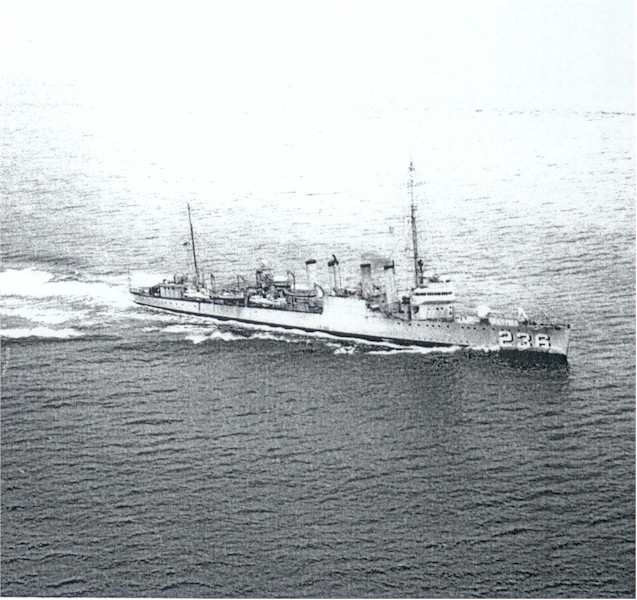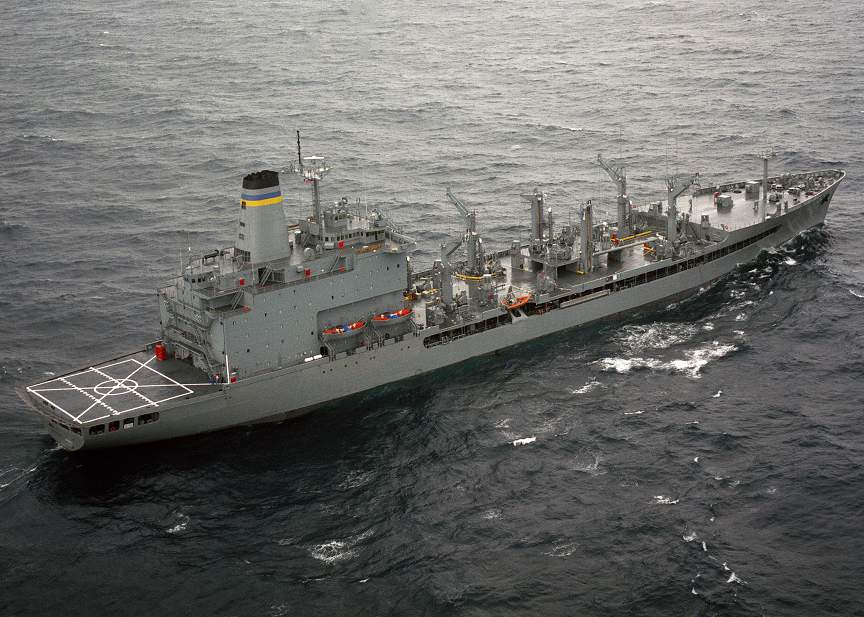Open trackbacks! Send ’em here!
Back on 5/23, I left you hanging at the end of the “1st Shift” of the day, leaving you at “Turn To!” at 1300 local time (1:00 PM) on my deployed (to the Persian Gulf for the later part of Earnest Will convoy operations) work day schedule. That’s the time, those so inclined roll out of their bunks and secure from their “nooner” (post lunch time nap).
Most of the afternoons were what I considered for “Ship’s work.” I couldn’t plan to tackle anything requiring a lot of thought, for the business of the routine, and sometimes not so routine, or the Ship kept right on going. Between incoming radio traffic, questions about navigation issues, constantly scanning to make sure the Ship was squared away, my stateroom door was open, ready to handle all small and large decision making tasks. I’d usually spend some time rifling through the in basket, sorting out items that could be handled quickly, either by reading the material and passing it along in the “chop chain,” or by scribbling an answer on the margin of the document.
I’d look over the AW-SHOOT tickler list and sometimes determine a line item listed was worth going out to hunt down the information required on its status. It was also in the afternoons that I’d make my way to the bridge to help make sure the allotment of training ammunition was properly used to keep training proficiency up to par. What that really means is we kept an M-14 7.62 rifle in the Chartroom, with two loaded magazines (20 rounds each). In the early part of the cruise, I’d look around to make sure it was clear of ships and boats in our local area, then I’d ask the CO for permission to burn off the two magazines. He’d say “yes” and I’d get the rifle and begin plinking at floating debris. As time went on, he, usually sitting in his chair on the Starboard bridge wing, would say, “Sure, XO, but I’d like to fire off a few rounds, too.” I’d be kind and let him shoot 20 of the 40 rounds. Later in the cruise, I’d get to the bridge maybe mid afternoon and he would say “XO, I used the training allowance.” Well, he did it because he could.
In addition to the CO and I getting some shooting in, we’d have the Gunner’s Mates come up and have them do training with the bridge watchstanders, working through their PQS qualifications for the M-14 rifle and M-60 machine guns (one mounted on each bridge wing). It gave us the capability of being able to order targets to be engaged at a moments notice, once all the Boatswain’s Mates, Quartermasters and Signalmen were all qualified on the weapons at the ready.
On Thursday afternoons, the “Weekly PB4T” (planning board for training) was the big event, where I and the department heads and the Command Senior Chief sat down and looked into the future to see who needed to be trained, what exercises the ship had to do, the manning of the ship now and in the future and any number of other topics of greater significance than just the days operations.
Other afternoons, I tended to wander the ship, talking to people, wandering through Radio Central, Combat Information Center and Central Control, before touring some of the more out of the way places, where there was not much routine traffic.
About 1700 (5:00 PM), I was back around my room, taking reports for the end of the work day, on how the progress on the items on the AW-SHOOT list were doing. Sometimes the discussions were pretty straight forward: “Done, XO.” Other times, the dialog became a monologue, if the rationale for not making the assigned date didn’t hold water.
Dinner was coming soon.
Entering the Wardroom, a few officers are already eating, as they have the 1800-2000 watch. A few more are lounging in the small area in the forward port side of the Wardroom on the couches, awaiting the Captain’s arrival a little before 1730 (5:30 PM).
When he gets there, we head for one of the two tables, the CO sitting at the head of one, and I on his right. Dinner is served and various conversations occur. Generally nothing heavy about work, but if it is “work” related, then it’s usually short questions as to “Hey, Ops, are you ready for the UNREP (underway replenishment) tomorrow?” Sometimes the chatter leans towards verbal replays of the last inport period, and the antics (or lack thereof) that had occured. Speaking of antics, one Wednesday, I’ll discuss what happens when a helo pilot sees a SONOBOUY storage tube and decides to “liberate” it back to US custody…Yes, alcohol was involved.
Dinner winds down and I head up to my Stateroom to get my clipboard and then take a walking tour of the Ship, specifically to see if “Sweepers” has been held. ENS Ray knows a little about that.
Usually “star time” was about this time. Star time was about 30 minutes after sunset, when you still could see the horizon, and also clearly see the main navigational stars. I’d grab the sextant from the Chart House, get a Signalman, get the stopwatch and set it for the time of observations, then step out to “shoot” the stars. I’d take the Ho and times, and file them away for later.
At 1830 (6:30 PM), the word is passed “Now lay before the Mast all 8 o’clock reports!” on the General Announcing System. The department heads, or a representatives report “All Secure.” I highlight the evenings operations, and any issues of cleanliness or general order, then head to Combat Information Center to pick up the Battle Orders for review.
Drafted by the Combat Systems and Operations Officers, this document lays out the CO’s estimate of the possible hostile conditions for the night, as well as the operational schedule of events. Rules of Engagement (ROE) as clearly spelled out, with any modifications that may have come in during the day. I scoop the notebook up, review it and sign in the line for me. Next I head to the Bridge and get the Night Orders from the Quartermaster of the Watch and go over them. The Night Orders have long been a Naval tradition, certainly for my entire time in the Navy. The Night Orders speak to navigational issues and things like expected rendezvous with other vessels, or, if you’re steaming in company with other warships, the formation ordered and any expected changes.
Battle Orders are a more recent addition, as a standardized process/document, and they by now are codified in the ship specific Combat Systems Doctrines, issued by a joint signature of both COMNAVSURFLANT and COMNAVSURFPAC. An outfall of the USS STARK (FFG-31) and the USS SARATOGA (CV-60) incidents cemented this procedure in place.
Shortly before 2000 (8:00 PM), I knock on the CO’s Cabin door and head in to wrap up the day, and hand him the two notebooks for his review and signature. It’s also a time for the two of us to discuss some longer range issues, and sometimes some of the personnel issues that crop up as a result of this type of duty.
By about 2100 (9:00 PM), I am out of the CO’s Cabin, delivering the Battle Orders to CIC and the Night Orders to the Bridge. I hand them to the Tactical Action Officer and Officer of the Deck, respectively, and make sure they get a grip on the “Big Picture” for the rest of the night.
And so ends the 2nd Shift of my day…..





